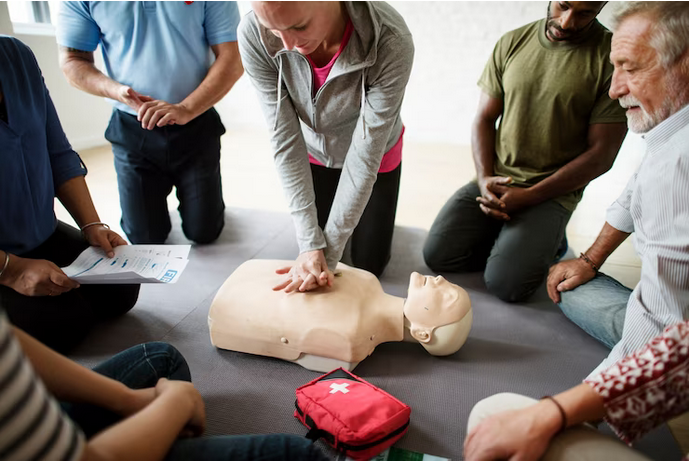Have you ever witnessed someone collapse due to a heart attack or choking? If so, you know how terrifying it can be to feel helpless in such a situation. The truth is, cardiac arrest can happen to anyone at any time, and it’s important to be prepared and act quickly. This is where CPR training comes in.
Cardiopulmonary resuscitation is a lifesaving technique that can be used to revive someone who has suffered cardiac arrest. CPR uses chest compressions and rescue breaths that help to keep the person’s blood flowing until emergency medical services arrive. The American Heart Association recommends that everyone learn CPR, regardless of their profession or lifestyle.
Why is CPR Training Important?
CPR training is essential for several reasons. Firstly, it can save lives. In the event of a cardiac arrest, the person’s chances of survival decrease by 10% for every minute that passes without CPR. By performing CPR, you can help to keep the person’s blood circulating until emergency medical personnel arrive, increasing their chances of survival and potentially reducing any harm they suffer from the medical emergency.
Secondly, CPR training can give you the confidence to act in an emergency. Knowing how to perform CPR can help you to feel more in control and less panicked in a high-pressure situation. This can be especially important if you’re caring for a loved one who experiences cardiac arrest, choking, or drowning.
Finally, CPR training is a valuable skill that can benefit your community and workplace. By learning CPR, you can help to create a safer environment for those around you. In the event of an emergency situation, you may be the only person nearby who knows how to properly perform CPR, making your knowledge potentially life-saving. When it comes to the workplace, being certified in CPR also makes you a more competitive candidate, even in fields that don’t require training. Managers will know they can rely on you during an emergency, and your coworkers will have an extra layer of help during a medical emergency.
Who Should Learn CPR?
Every able-bodied person and many people with disabilities can learn CPR, regardless of age or profession. In fact, the AHA recommends that everyone who can, should, including children as young as nine years old. CPR training is especially important for those working in healthcare, emergency services, education and childcare, or caregiving, as they may be more likely to encounter situations where CPR is needed. The more people who know this life-saving skill, the more likely people experiencing cardiac arrest get the help they need.
How Can You Learn CPR?
You have a lot of options for ways to learn CPR, though not all of them include certification. If CPR training is required for your job or you want to list it on your resume and advertise your skill, you must obtain certification. If you just want to know in case something happens with your family, you can learn from practical resources.
Courses Including Certification
You can take lessons both in person or online from several organizations, including Protrainings. You can also find courses with a hybrid approach. Make sure that any course you choose is taught by certified instructors working for an accredited institution that is recognized and approved by organizations like the American Heart Association.
In-person classes are great for tactile or social learners who do best with a hands-on approach or learning alongside other people. They do require attending on a schedule. Conversely, online courses are better for people who have trouble fitting in a scheduled class, don’t have reliable means of transport, or simply prefer to learn in the comfort of their own home at their own pace. Hybrid courses take a combined approach that varies by instructor.
After you complete your course of choice, you will go through an examination. When you pass, you receive your certification, which is valid for two years. After that, you will need to take a refresher course to maintain certification. Should you decide to drop your certification, you must inform any parties that were informed of your certification, such as your employer.
Practical Resources without Certification
You can also learn CPR through online resources like instructional articles and videos or through practical resources from your library. A lot of mobile apps also provide tips or step-by-step instructions for CPR during emergency situations.
Saving Lives, One Compression at a Time
CPR training is a crucial skill that everyone should learn. It can help you save lives, give you the confidence to act in an emergency, and benefit those around you. Whether you’re a healthcare professional or a concerned citizen, CPR training can help you make a difference in someone’s life. So, don’t wait— take the first step today and start your training. You never know when you might need to use your skills to save a life.

